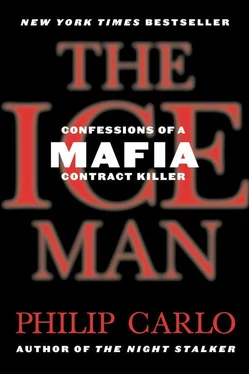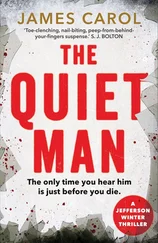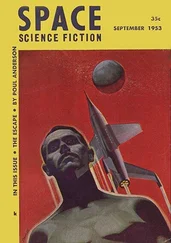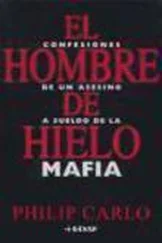When, later, Richard met Remi and told him that the Arab wasn’t a concern anymore, Remi was very pleased, and bewildered.
“How,” he kept asking, “did you manage this?” his brow all creased with curiosity.
“I arranged for him to have a heart attack,” Richard modestly said, and no more, a slight smile on his face.
The following day, Richard opened a numbered account in Zurich, took a train to Luxembourg, opened a second account, and returned to Zurich. Now all he had to do was open a fourth account in the Cayman Islands and it would be done.
Remi gave Richard a second check, this one for $675,000, made out to the Mercantile Corporation. Richard soon returned to the States, drove down to Georgia, and deposited this check. He went to the Cayman Islands and opened still another corporate account. Then Richard soon arranged for the funds from the second check to be transferred to the Cayman Islands account, then to the Zurich account, and finally to the Luxembourg account, creating a trail of money nearly impossible to follow. Richard next arranged for Remi and the Asian bank official to get their ends from the Luxembourg account. He then gave Spasudo his end.
If, Richard believed, Spasudo kept coming up with viable schemes, without trouble, he’d play straight with him. Spasudo told Richard how the dealer and two of his friends had been shot to death. “It’s a dangerous world,” Richard said. Nothing more.
Phil Solimene again called and invited Richard to the store. Richard said he’d come by “when I can.” Solimene knew he had to be very careful with Richard. If Richard sensed any kind of setup, a double cross, he’d kill Solimene in a heartbeat, Solimene knew, and so did everyone else—the state police and the ATF.
Unbeknownst to Kane and the authorities, Richard again left for Zurich. This time he had to stay and wait for a check for nearly two weeks. He didn’t like being away from home so long, but he had no alternative. He phoned Barbara several times a day, spent a fortune on phone calls, but that didn’t matter. It got so that he missed Barbara to such a degree, wanted to make love with her so much, that he flew in, made love numerous times to his wife, and left the very next day, went back to Zurich. There were many opportunities for Richard to bed women in Zurich, Remi offered him different females, but Richard declined. “I look but don’t touch,” he told Remi.
Richard would not cheat on Barbara. He thought that low-down and immoral, and wouldn’t do it. He had, though, no morality when it came to killing men, feeding live human beings to rats; such things, in truth, didn’t even phase him. But, infidelity, forget it. He wouldn’t do it. Perhaps that was why he could be so brutal to Barbara: he viewed her not so much as a human being with feelings, but as an object that belonged to him, and because she was an object he could do as he wished with her. Barbara recently said, When he was away, the house was… peaceful. The pressure, the tension, he brought weren’t there. Truthfully, I preferred it when he was away. The kids and I had more fun. We didn’t have to worry about him tossing over the dinner table.
Dominick Polifrone showed up at the store just about every day now. He had readily been accepted by the regulars. Sometimes he had suitcases with him filled with exotic guns and silencers, and people wanted to buy what he had, but he’d always say these things were “already promised,” though he assured them that more would be forthcoming. Weeks quickly turned into months, and they all came to realize that Richard was staying away from the store. Much of this had to do with what he was doing in Zurich. He did, however, just show up at the store several times unexpectedly—which he had always done. He’d walk in, shoot the breeze, maybe play some cards, and leave, always when Polifrone wasn’t there. The investigation was going nowhere fast. Pat Kane became despondent and began thinking that Kuklinski was just too clever for them; he seemed to have a kind of sixth sense that kept him out of trouble, out of their reach, out of harm’s way. Kane knew Richard was a stone-cold killer, yet he and the others could do nothing to stop him. In frustration, he came home every night wearing his “work face,” as Terry called it… sad and forlorn, the light at the end of the tunnel diminishing, indeed, disappearing.
Much change was afoot in the Gambino crime family. Paul Castellano was in serious trouble not only with the law but with his own soldiers, lieutenants, and captains. It was now common knowledge that the feds had bugged his home, and he had been taped talking endlessly about mob business and making ridiculous romantic ramblings to the housekeeper.
Violent, sudden change was in the wind, blowing strongly from the Bergin Hunt and Fish Club—John Gotti’s home base.
With the help of Sammy Gravano, Gotti hatched an audacious plan to kill Castellano and take over the family. This was, they both knew, a very dangerous enterprise on numerous levels. Paul was the head of a family, and this hit was not sanctioned by the commission, as it had been with Carmine Galante (a must). But, brash to the point of recklessness, Gotti was resolved to take Paul out and take charge of the family. Most of the captains couldn’t stand Paul, it was no secret, and Gotti was sure that once Paul was dead, the transition to his becoming the boss would be a relatively smooth one, that all the captains would quickly fall into line behind him, which is exactly what happened.
Nineteen eighty-five was coming to an end. The holidays were rapidly approaching. Richard Kuklinski had just returned from one of the many trips he’d been making to Europe when Sammy Gravano phoned him and a meeting was arranged at the same diner on the Jersey side of the George Washington Bridge. Gravano knew that Richard could be trusted. He had proven that over and over again. He knew too that he had no allegiance to anyone and that he was an extremely efficient killer who always got the job done: Richard never took a contract he didn’t fill, a fact he is still proud of to this day. Gravano came right to the point and told Richard he had a “special piece of work” that would involve “a boss.” “You have a problem in any way with that?”
“I’ll go see anyone,” Richard said, which is exactly what Gravano wanted to hear. Richard had, in fact, heard rumors about this very thing. Many men in the underworld were talking about Paul Castellano being capped: for his greed; for his insisting that everyone report to him every week, giving the feds a chance to take photos of all the skippers; for not keeping his home from being bugged; for his scandalous affair with a Colombian housekeeper while his wife—Carlo Gambino’s sister—was actually in the house.
A fuckin’ infamy was the collective opinion throughout Mafiadom.
“It’s Paul,” Gravano said.
“Figured that,” Richard said.
“So you’re down?” Gravano said.
“Absolutely,” Richard said.
“Okay, good. John’ll be pleased. We’ll never forget this, you know, Rich.”
“Good to hear that.”
“There will be a meeting—a dinner meeting in New York. It’ll go down there, in front of the place. On the street. You okay with that?”
“I aim to please. When?”
“Soon… within a week. Your job will be the bodyguard, Tommy Bilotti. He’ll be driving. He’s been with Paul over twenty years. Paul will be in the backseat. Don’t concern yourself with him—just Bilotti; that’s your target! Other guys’ll take care of Paul.”
“Fine.”
“You’ll be part of a team. I’m going to give you a hat. You’ll all be wearing this same hat. Anyone near Paul’s car don’t have on this hat, cap ’im!”
Читать дальше












